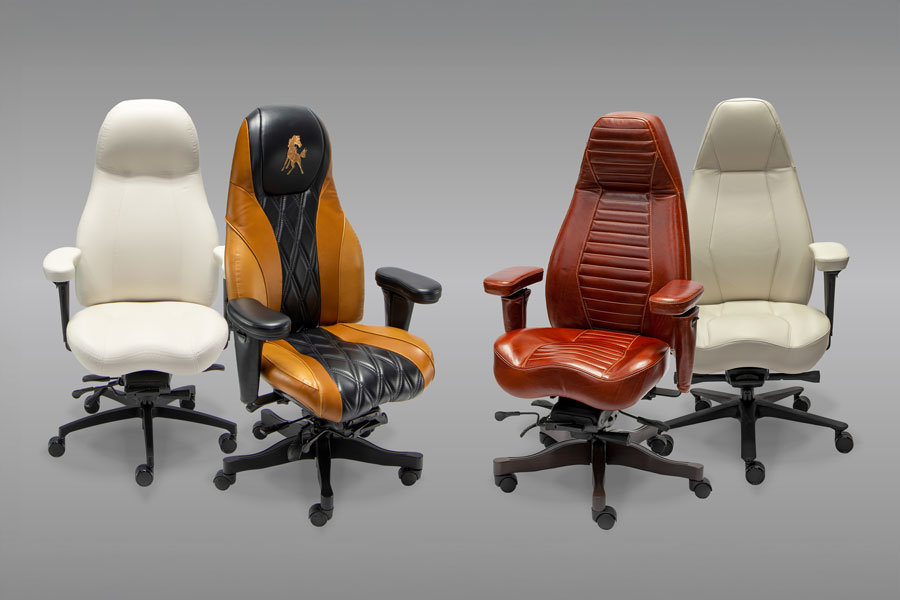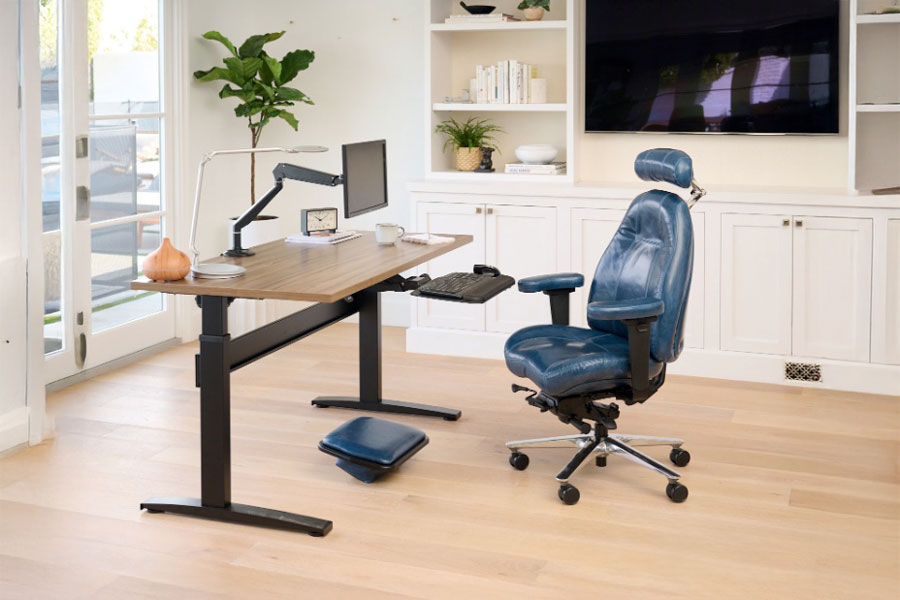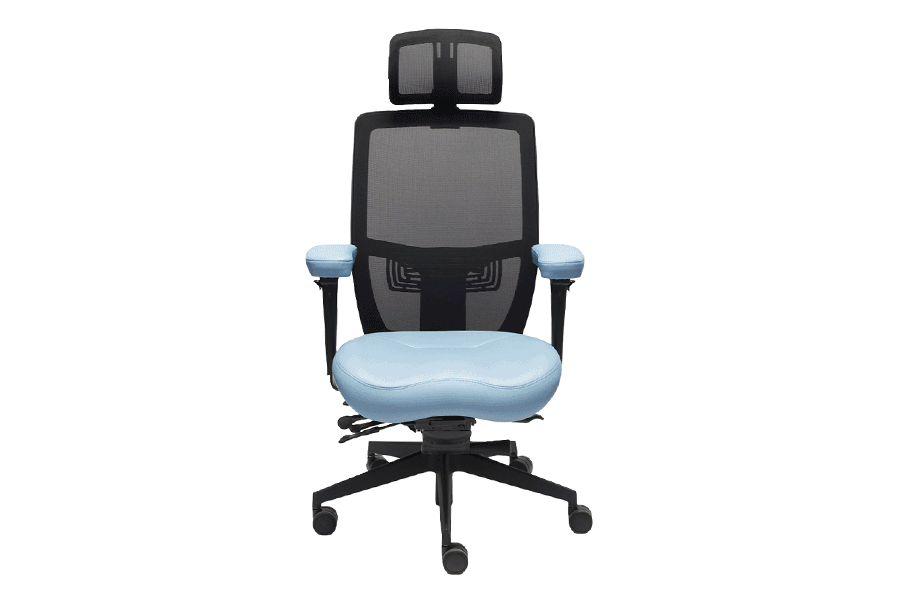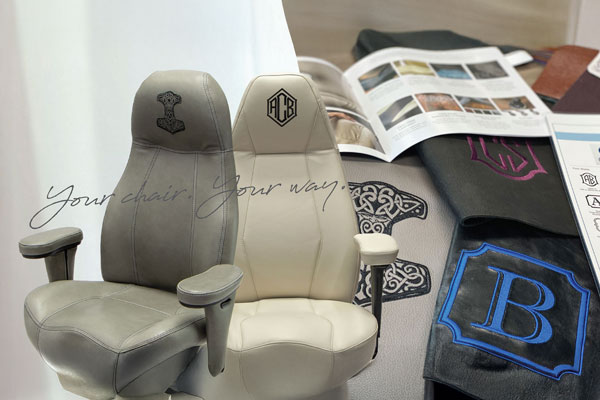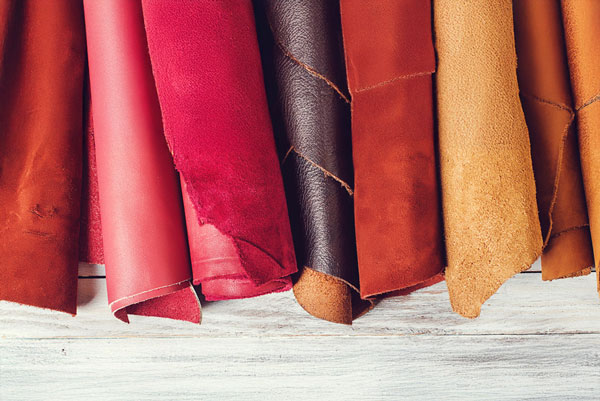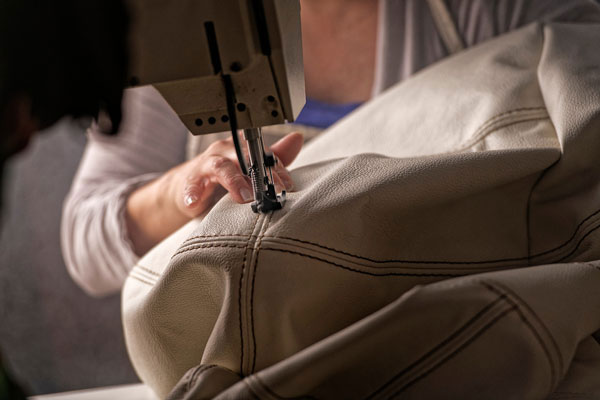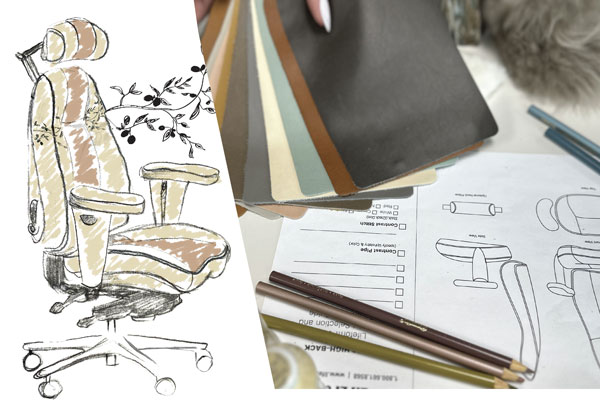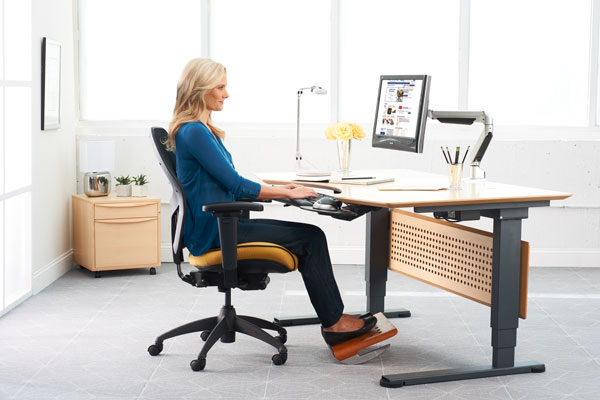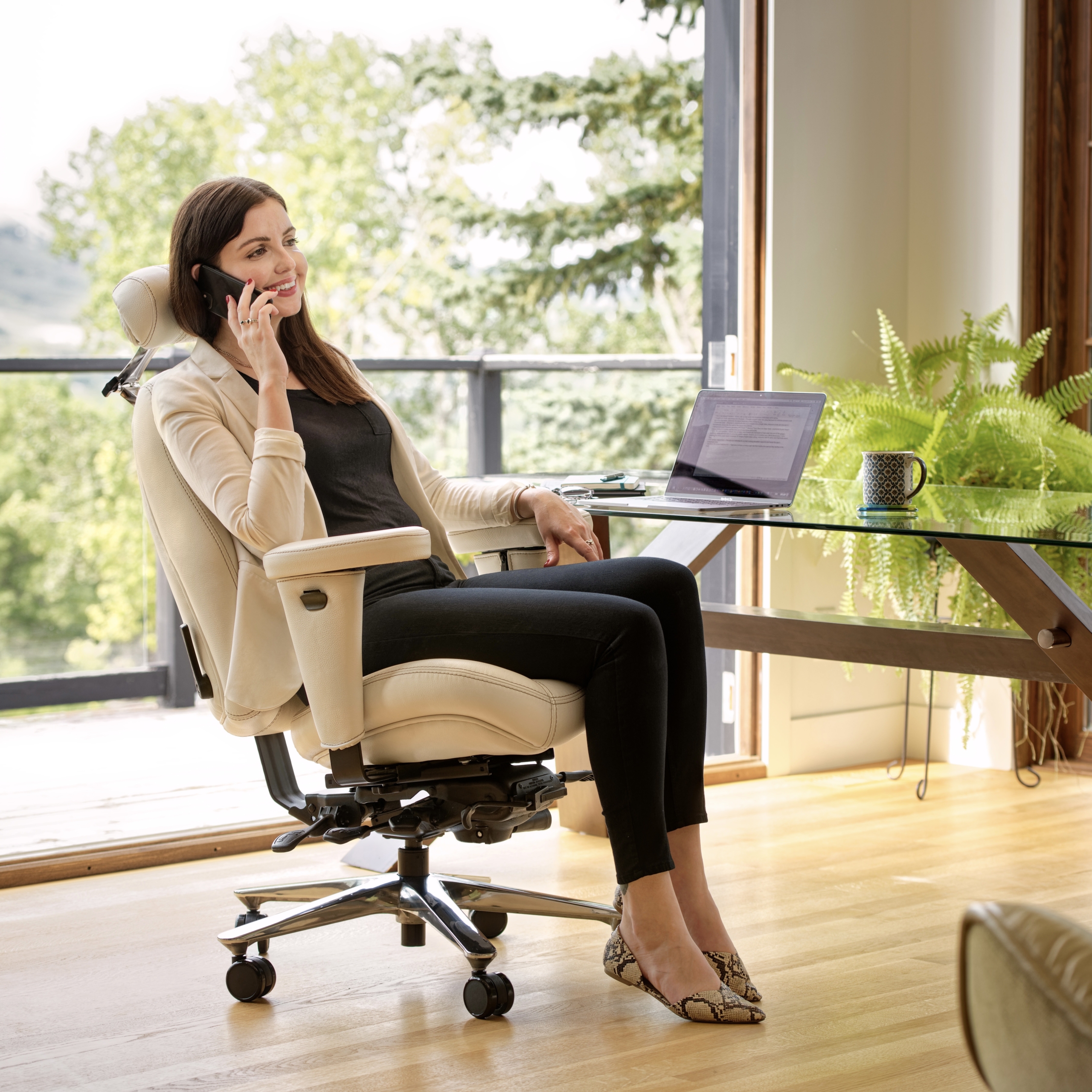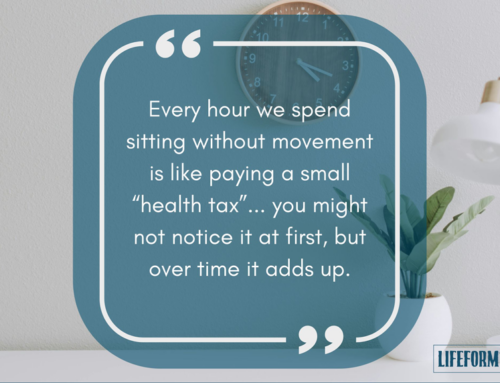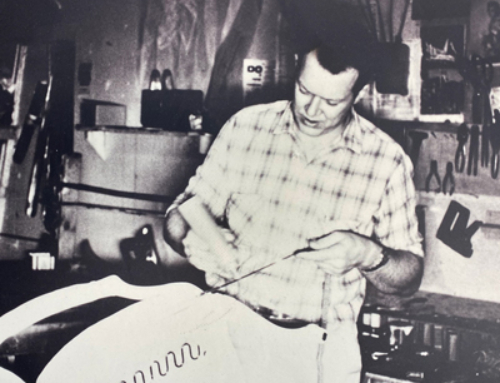How to Choose the Best Office Chair for Your Body Type
Body type, work style, and overall health all play a role in determining the type of office chair that is right for you. Here are the factors to consider when selecting your next office chair.
When it comes to health and productivity at work, it might feel like the cards are stacked against you. With limited breaks, artificial light, constant distractions, and hours sitting in front of a screen, it’s easy to see how burnout happens both mentally and physically. On top of that, the chair you’re sitting on was mass-produced in a factory, designed to be affordable and only somewhat comfortable for the average person.
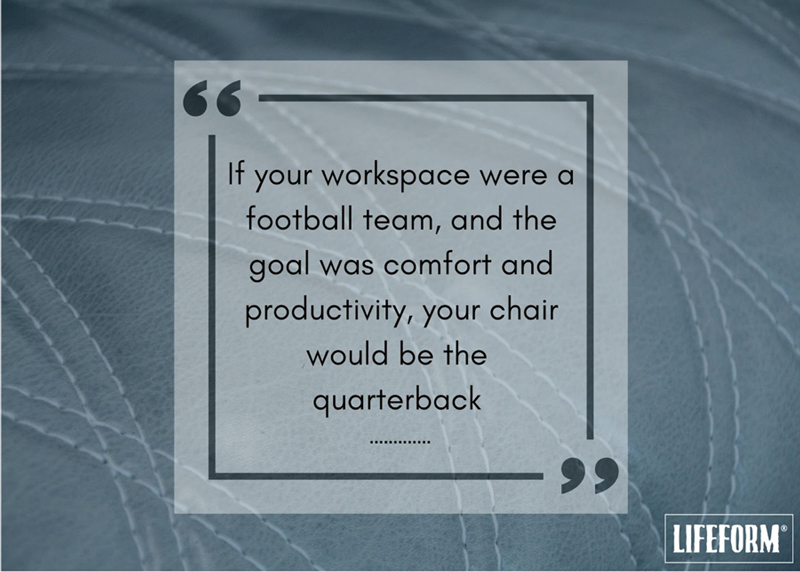
The problem is, you’re not average, you’re unique, and sitting in a chair designed for someone else isn’t helping your health or focus; it’s actually doing the opposite. The wrong chair can create poor posture habits leading to further discomfort, distraction, and even long-term health problems.
So if you’re looking for a new chair, the first step is to change your perspective. Instead of viewing an office chair simply as a place to sit during work hours, see it as an investment in your health, productivity, and general well-being.
If your workspace were a football team, and the goal was comfort and productivity, your chair would be the quarterback.
The question is, which chair do you choose to take you to the endzone? With every player on the bench claiming they have the best office chair, it can be hard to decide. Despite all the noise, one thing is certain: whether you’re tall, petite, or somewhere in between, the best office chair needs to be personalized.
In this guide, we’ll walk you through the following factors to consider when choosing the best ergonomic office chair:
- Body type
- Posture
- Comfort
- Durability
1. Your Body Type: The Foundation of Comfort
As the title of this blog suggests, your body type is the most important thing to consider when it comes to finding the right office chair.
Think of your chair as you would your runners or football cleats: a shoe that’s too big and you’ll be floating around and have to adjust how you move, making it awkward and uncomfortable; a shoe that’s too small and you’ll be squeezed and pinched in pressure points. Similarly, if you pick a chair that’s too big you’ll be awkward in your positioning/posture. If you pick a chair that’s too small, you’ll be crammed which will create discomfort and distraction.
If you want to play at your best, the wrong sized equipment won’t only hold you back but will lead to long-term pain; an office chair is no different. Here’s how your size and shape should influence your chair choice:
- For Taller Individuals: Look for a chair with a higher backrest and adjustable seat depth to ensure ample legroom and neck support. Opt for models that offer adjustable lumbar support to accommodate a longer torso.
- For Petite Individuals: A chair with a lower seat height and a smaller backrest will help prevent discomfort compared to an office chair that’s too large and overwhelming. Make sure you can adjust the seat height and armrests so your feet remain flat on the floor for optimal circulation.
- Weight Consideration: Select a chair with a weight capacity that exceeds your own. This ensures the chair can provide proper support without compromising comfort or longevity. At LIFEFORM Chairs, we have a weight limit recommendation of up to 350lbs.
A chair that aligns with your body type and dimensions is the first step to creating a fully customized ergonomic workstation. Just like a pair of perfect fitting football cleats, the right size keeps you in control of your comfort and focus.
2. Posture: Chair and Body Communication
A quarterback needs to have a clear communication with the rest of the team, to call plays and make successful passes. Your chair uses its specific ergonomic features to communicate with your body too. The right features in a chair will tell your body to stay in alignment, relieving you of slouched shoulders and a hunched neck. Correct posture is key to avoid long-term health consequences and to reach the comfort-focus endzone.
Here are the features to look for in an office chair that supports good posture:
- Lumbar Support: Choose a chair with built-in lumbar support that can be adjusted to fit the curve of your spine. This support is crucial for preventing lower back pain and maintaining a neutral spine.
- Seat Depth Adjustment: The right seat depth ensures that your hips are in contact with the back rest and that there is a small space between the edge of the seat and the back of your legs. This encourages a correct pelvic tilt, upright posture, and improves circulation.
- Adjustable Armrests: Armrests that adjust to your height and keep your arms at a neutral level helps reduce shoulder strain and a rounded back. Not to be overlooked, this simple feature can make a significant difference in comfort throughout the day.
A chair that communicates with your body and supports your posture effectively can help reduce fatigue and prevent musculoskeletal issues. With these ergonomic features in place, your quarterback will be at the top of their conference.
There’s just a few more items to address before the team is ready for the Super Bowl.
3. Comfort: Soft AND Supportive
A football player’s protective gear needs to be soft enough to move fluidly, but hard enough to support and protect the player under impact. A well-designed office chair is no different; it needs to cushion your body without being so soft that it lets you sink into more poor sitting habits.
Here are some features to look for when shopping for your next chair:
- Padded Seat and Backrest: Look for high-density foam or memory foam padding that contours to your body, providing relief from pressure points while you sit. A memory foam seat cushion that is soft but supportive will protect you from sit-bone pain, nerve pinches, and will allow circulation to flow naturally. If a seat is too soft, it will collapse under pressure, and you’ll feel the chair frame at the bottom after long-term use.
Our SmartCore Seating Technology is a two layer system, a high-density foam covering the frame to prevent bottoming out and to provide support, and then our proprietary LIFE-Foam™ memory foam layer on top to provide softness, reducing pressure on your sit bones and joints. It’s like sitting on a cloud.
- Recline Feature: A tilt mechanism that allows you to recline or shift positions throughout the day can help prevent stiffness and promote better circulation. Some chairs even have adjustable tension, so you can control how much resistance you get when leaning back.
- Headrests: If you often find yourself leaning forward or experiencing neck strain, a chair with a built-in headrest can provide much-needed support to reduce neck and shoulder pain. An adjustable headrest option is a great addition to a mid-back office chair model.
Ultimately, the more comfortable your chair, the longer you can work efficiently without distraction or discomfort. But remember, long-term comfort doesn’t just mean soft; it also means supportive.
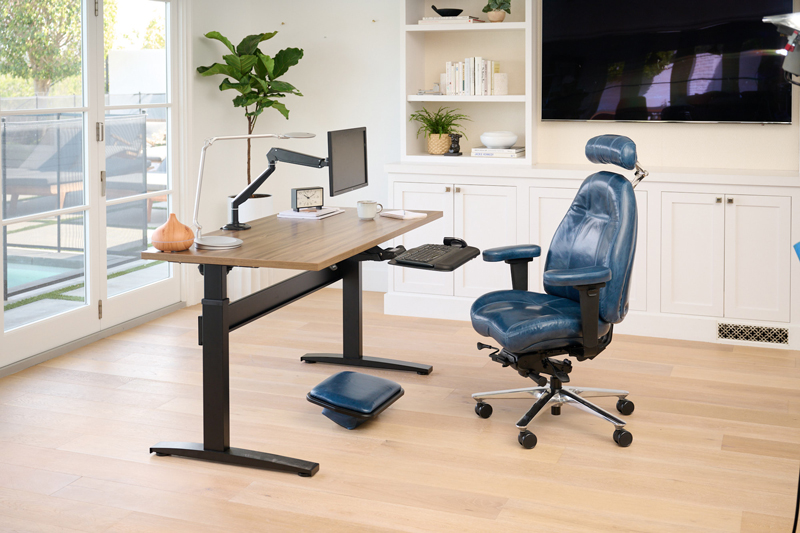
4. Durability: Quality That Lasts
Last and definitely not least is durability. A top quality football player needs to have a long-term mind set. Without longevity, their legacy is short lived and their team will have to find a new quarterback, setting them back years of progress.
When we look at an office chair as an investment, it’s important to choose one that will stand the test of time. A high-quality chair can endure years of daily use without compromising its comfort and structure, ensuring you meet your goals with minimal hiccups and replacement players along the way.
Here’s what to look for in a durable office chair:
- Sturdy Materials: Look for chairs built with precision steel mechanisms, reinforced bases, and premium upholstery that resists wear over time. High-quality materials, from performance textiles to heavy-duty casters, ensure your chair delivers comfort and reliability for years, not months.
Don’t forget, the best performing players aren’t cheap…you get what you pay for.
- Warranty and Support: Reputable manufacturers offer warranties on their products, ensuring that you’re covered in case of defects or malfunctions. Always check for a warranty before making your purchase.
Each part of a chair plays an important role. A reliable manufacturer will help you make appropriate replacements when parts reach the end of their lifetime.
- Eco-Friendly Options: Many modern office chairs are designed with sustainability in mind, using recycled materials and environmentally friendly manufacturing practices. Opting for eco-conscious chairs not only benefits your comfort but also the natural environment and local communities.
Quality chairs are built to last. When building your team, make a wise investment that pays off in the long run, saving you from making a new purchase every few years.
A Custom Office Chair is the Perfect Office Chair
You wouldn’t pick a quarterback for your team from a catalog, so why would you for your office chair? Instead, look for the features and customizations that align with your unique needs and body type. Whether you suffer from back pain, want to improve your posture, or simply need a more comfortable place to work, LIFEFORM has a chair for you.
We’re committed to offering custom ergonomic office chairs, tailored to your body and built to last. With options for every body type and work style, we help you create a healthier workspace so you can win the Super Bowl of comfort and productivity.
Take our chair finder quiz to find your perfect LIFEFORM chair.



